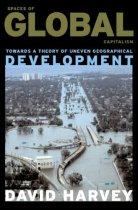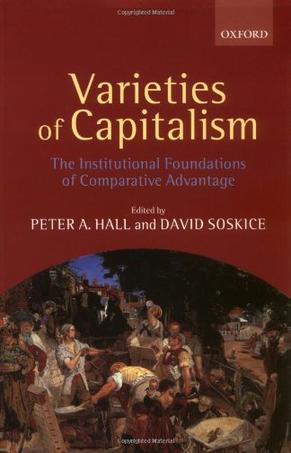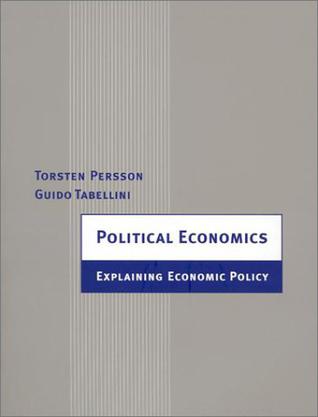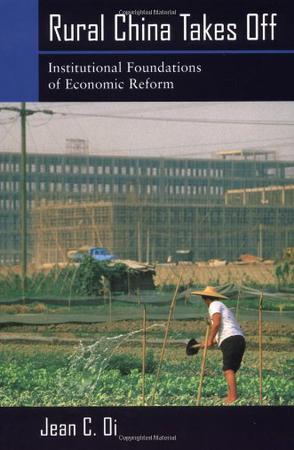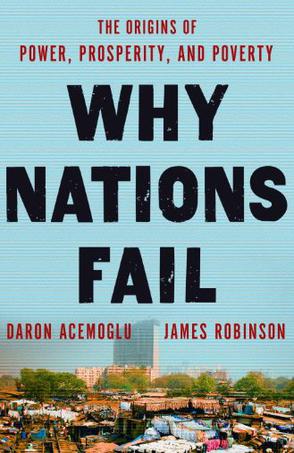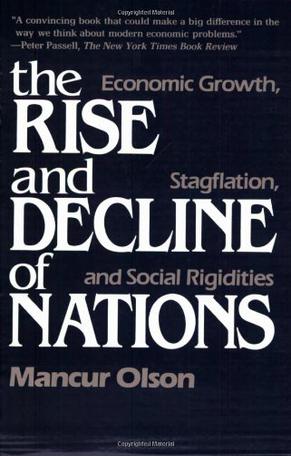欢迎来到相识电子书!
标签:PoliticalEconomy
-
Spaces of Global Capitalism
Prolific social theorist Harvey explains how a turn towards harshly neo-liberal policies in the 1970s and 80s, specifically in the U.S. (and its involvement in the economies of Chile and Mexico) and the UK, affected "the historical geography of global capitalism," and produced effects that range from dictatorial China's embrace of neo-liberalism-which Harvey understands as an effort to restore class power to the top elites-to the successful manipulation of the money supply in Japan and West Germany. But the main paradox of global neo-liberalism, Harvey argues, is that it does not promote real, fairly distributed economic growth. Tracing global development within capitalism, Harvey finds that the stories told about the situation-including the one where "backwards" countries need to "catch up"-are myths, since the system is not set up to support the actual development of most countries and populations, but rather to subjugate them. This is not a new idea, but Harvey provides a good (if dense) description of the current global state of affairs. He presents his own class-based framework for understanding "how the dynamics of political and class struggles power continuous changes in capitalism's uneven geographical development." Copyright © Reed Business Information, a division of Reed Elsevier Inc. All rights reserved. ----From Publishers Weekly -
Varieties of Capitalism
What are the most fundamental differences among the political economies of the developed world? How do national institutional differences condition economic performance, public policy, and social well-being? Will they survive the pressures for convergence generated by globalization and technological change? These have long been central questions in comparative political economy. This book provides a new and coherent set of answers to them. Building on the new economics of organization, the authors develop an important new theory about which differences among national political economies are most significant for economic policy and performance. Drawing on a distinction between 'liberal' and 'coordinated' market economies, they argue that there is more than one path to economic success. Nations need not converge to a single Anglo-American model. They develop a new theory of 'comparative institutional advantage' that transforms our understanding of international trade, offers new explanations for the response of firms and nations to the challenges of globalization, and provides a new theory of national interest to explain the conduct of nations in international relations. The analysis brings the firm back into the centre of comparative political economy. It provides new perspectives on economic and social policy-making that illuminate the role of business in the development of the welfare state and the dilemmas facing those who make economic policy in the contemporary world. Emphasizing the 'institutional complementarities' that link labour relations, corporate finance, and national legal systems, the authors bring interdisciplinary perspectives to bear on issues of strategic management, economic performance, and institutional change. This pathbreaking work sets new agendas in the study of comparative political economy. As such, it will be of value to academics and graduate students in economics, business, and political science, as well as to many others with interests in international relations, social policy-making, and the law. -
Political Economics
What determines the size and form of redistributive programs, the extent and type of public goods provision, the burden of taxation across alternative tax bases, the size of government deficits, and the stance of monetary policy during the course of business and electoral cycles? A large and rapidly growing literature in political economics attempts to answer these questions. But so far there is little consensus on the answers and disagreement on the appropriate mode of analysis.Combining the best of three separate traditions--the theory of macroeconomic policy, public choice, and rational choice in political science--Torsten Persson and Guido Tabellini suggest a unified approach to the field. As in modern macroeconomics, individual citizens behave rationally, their preferences over economic outcomes inducing preferences over policy. As in public choice, the delegation of policy decisions to elected representatives may give rise to agency problems between voters and politicians. And, as in rational choice, political institutions shape the procedures for setting policy and electing politicians. The authors outline a common method of analysis, establish several new results, and identify the main outstanding problems. -
Why Nations Fail
Review "'You will have three reasons to love this book. It's about national income differences within the modern world, perhaps the biggest problem facing the world today. It's peppered with fascinating stories that will make you a spellbinder at cocktail parties - such as why Botswana is prospering and Sierra Leone isn't. And it's a great read. Like me, you may succumb to reading it in one go, and then you may come back to it again and again.' (Jared Diamond, Pulitzer-prize-winning author of bestselling books including 'Guns, Germs, and Steel' and 'Collapse')" ~~~~~~~~~~~~~~~~~~~~~~~~~~~~~~~~~~ Product Description This is a provocative new theory of political economy explaining why the world is divided into nations with wildly differing levels of prosperity. Why are some nations more prosperous than others? "Why Nations Fail" sets out to answer this question, with a compelling and elegantly argued new theory: that it is not down to climate, geography or culture, but because of institutions. Drawing on an extraordinary range of contemporary and historical examples, from ancient Rome through the Tudors to modern-day China, leading academics Daron Acemoglu and James A. Robinson show that to invest and prosper, people need to know that if they work hard, they can make money and actually keep it - and this means sound institutions that allow virtuous circles of innovation, expansion and peace. Based on fifteen years of research, and answering the competing arguments of authors ranging from Max Weber to Jeffrey Sachs and Jared Diamond, Acemoglu and Robinson step boldly into the territory of Francis Fukuyama and Ian Morris. They blend economics, politics, history and current affairs to provide a new, powerful and persuasive way of understanding wealth and poverty. They offer a pragmatic basis for the hope that at 'critical junctures' in history, those mired in poverty can be placed on the path to prosperity - with important consequences for our views on everything from the role of aid to the future of China. -
The Rise and Decline of Nations
The years since World War II have seen rapid shifts in the relative positions of different countries and regions. Leading political economist Mancur Olson offers a new and compelling theory to explain these shifts in fortune and then tests his theory against evidence from many periods of history and many parts of the world. “[T]his elegant, readable book. . . sets out to explain why economies succumb to the ‘British disease,’ the kind of stagnation and demoralization that is now sweeping Europe and North America. . . . A convincing book that could make a big difference in the way we think about modern economic problems.”—Peter Passell, The New York Times Book Review “Schumpeter and Keynes would have hailed the insights Olson gives into the sicknesses of the modern mixed economy.”—Paul A. Samuelson, Massachusetts Institute of Technology “One of the really important books in social science of the past half-century.”—Scott Gordon, The Canadian Journal of Economics “The thesis of this brilliant book is that the longer a society enjoys political stability, the more likely it is to develop powerful special-interest lobbies that in turn make it less efficient economically.”—Charles Peters, The Washington Monthly “Remarkable. The fundamental ideas are simple, yet they provide insight into a wide array of social and historical issues. . . . The Rise and Decline of Nations promises to be a subject of productive interdisciplinary argument for years to come.”—Robert O. Keohane, Journal of Economic Literature “I urgently recommend it to all economists and to a great many non-economists.”—Gordon Tullock, Public Choice “Olson’s theory is illuminating and there is no doubt that The Rise and Decline of Nations will exert much influence on ideas and politics for many decades to come.”—Pierre Lemieux, Reason Co-winner of the 1983 American Political Science Association’s Gladys M. Kammerer Award for the best book on U.S. national policy
热门标签
下载排行榜
- 1 梦的解析:最佳译本
- 2 李鸿章全传
- 3 淡定的智慧
- 4 心理操控术
- 5 哈佛口才课
- 6 俗世奇人
- 7 日瓦戈医生
- 8 笑死你的逻辑学
- 9 历史老师没教过的历史
- 10 1分钟和陌生人成为朋友

